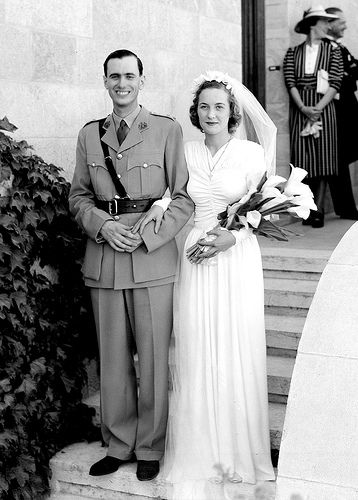Kimberly looked at the young woman, even more confused.
“My name is Siobhan. I am an Aisling Ra’dala, or what you might call a Dream Runner. My kind has been in existence for as long as yours, for humans cannot exist without aisling. Every once in awhile, though, a human loses their aisling, or forgets how to find it. That is when we runners come in.”
The girl smiled again, cocking an eyebrow over her shining green eyes.
“So…” Kimberly stammered, trying to understand. “You help humans find their dreams?”
“That we do, friend,” Siobhan answered. “Sometimes it takes a lot of work to find a dream which has been lost for so long. Sometimes we must dig and get dirty, wading through the dredge of bitterness or the drowning suffocation of sorrow. Sometimes the aisling are so flighty and out of reach that we must learn how to jump and spread wings. And sometimes we just have to focus so we can chase them down.”
Kimberly thought for a moment. What had happened to her dreams, her aisling? Had she forgotten about them so many years ago? Wasn’t she just thinking how her life had turned into a never-ending cycle of just getting by?
Finally she turned to Siobhan. “Are you here to help me?”
The girl did not respond, other than to look at Kimberly with an intense expression. It was a dare, from one woman to another. Would Kimberly accept the challenge? She let out a long breath.
“All right, then, let’s do this,” she said.
A wide smile broke across Siobhan’s porcelain face. “You are ready to see,” she said. “Come this way.”
She brought Kimberly to one of the faded pictures hanging on the wall. It was an image of her grandmother when she was a fresh young bride standing arm in arm with her beaming beau, Kimberly’s grandfather. She always loved the picture. To Kimberly, it was a love story personified in perfection.
Maeve McKenna, her grandmother, was a beautiful woman. Her reddish-brown hair, grey eyes, and fiery personality conveyed the epitome of an Irish beauty. Born in Dublin, but raised in the outskirts of London, Maeve had quickly developed a reputation of the girl who played “hard to get.” Really, she was just particular. She didn’t want any old beau for the sake of someone to hold her hand or take her dancing. She wanted the real thing and she was willing to wait until she found the man who fit the bill.
The war swept through Europe and everything changed. Maeve’s world as she knew it was turned upside down. Thousands of young men were shipped across the channel, while her girlfriends volunteered at the local canteens, feeding the tattered boys who returned. Air raid sirens wailed at odd hours in the night, waking her family and sending the younger children scrambling into her narrow metal-frame bed for comfort.
Maeve began working at the War Office in London, hidden deep underground for protection from the bombs of raid drops. She was one of the assistant secretaries for the Commander-in-Chief of British Forces, typing up memos and letters which conveyed matters of great importance. Maeve also frequently wrote the letters of condolence which were sent to family members who had lost a son, brother, husband, or father. Although instructed to keep the letters as brief and to-the-point as possible, she could not help trying to convey a more personal message and an acknowledgement of the grief which was inevitably felt at the loss. As she brought the stack of letters awaiting signatures to the Commander’s desk each night she tried very hard not to notice the resigned sigh he would utter while perusing the letters before adding his pen to paper. To her surprise, he never said anything, although the crinkly line which furrowed between his brows seemed to grow deeper and deeper every day.
Siobhan interrupted Kimberly’s reverie as memories of her grandmother filled her mind.
“Are you ready?” she asked, taking a hand from her pocket for the first time since she appeared in the tiny room. “Now is the time to touch the glass,” she said, extending her hand toward the picture of Maeve on her wedding day. As she reached out toward the glass, Kimberly noticed the girl’s petite hand was encased in a glove made of the most delicate ivory lace she had ever seen, with tiny seed pearl buttons fastened at the back of her wrist.
Kimberly followed Siobhan’s action and touched the glass at the same time as the girl. There was a similar rolling tingle which swept through her body and made her head start to spin. Kimberly closed her eyes, afraid that she would be unable to stop the tipping turn her body involuntarily made. Finally when she opened them again she uttered a gasp of surprise. There in front of her was her grandmother, young and vibrant, typing furiously on an old typewriter while sitting in a tiny box of a room.
“My name is Siobhan. I am an Aisling Ra’dala, or what you might call a Dream Runner. My kind has been in existence for as long as yours, for humans cannot exist without aisling. Every once in awhile, though, a human loses their aisling, or forgets how to find it. That is when we runners come in.”
The girl smiled again, cocking an eyebrow over her shining green eyes.
“So…” Kimberly stammered, trying to understand. “You help humans find their dreams?”
“That we do, friend,” Siobhan answered. “Sometimes it takes a lot of work to find a dream which has been lost for so long. Sometimes we must dig and get dirty, wading through the dredge of bitterness or the drowning suffocation of sorrow. Sometimes the aisling are so flighty and out of reach that we must learn how to jump and spread wings. And sometimes we just have to focus so we can chase them down.”
Kimberly thought for a moment. What had happened to her dreams, her aisling? Had she forgotten about them so many years ago? Wasn’t she just thinking how her life had turned into a never-ending cycle of just getting by?
Finally she turned to Siobhan. “Are you here to help me?”
The girl did not respond, other than to look at Kimberly with an intense expression. It was a dare, from one woman to another. Would Kimberly accept the challenge? She let out a long breath.
“All right, then, let’s do this,” she said.
A wide smile broke across Siobhan’s porcelain face. “You are ready to see,” she said. “Come this way.”
She brought Kimberly to one of the faded pictures hanging on the wall. It was an image of her grandmother when she was a fresh young bride standing arm in arm with her beaming beau, Kimberly’s grandfather. She always loved the picture. To Kimberly, it was a love story personified in perfection.
Maeve McKenna, her grandmother, was a beautiful woman. Her reddish-brown hair, grey eyes, and fiery personality conveyed the epitome of an Irish beauty. Born in Dublin, but raised in the outskirts of London, Maeve had quickly developed a reputation of the girl who played “hard to get.” Really, she was just particular. She didn’t want any old beau for the sake of someone to hold her hand or take her dancing. She wanted the real thing and she was willing to wait until she found the man who fit the bill.
The war swept through Europe and everything changed. Maeve’s world as she knew it was turned upside down. Thousands of young men were shipped across the channel, while her girlfriends volunteered at the local canteens, feeding the tattered boys who returned. Air raid sirens wailed at odd hours in the night, waking her family and sending the younger children scrambling into her narrow metal-frame bed for comfort.
Maeve began working at the War Office in London, hidden deep underground for protection from the bombs of raid drops. She was one of the assistant secretaries for the Commander-in-Chief of British Forces, typing up memos and letters which conveyed matters of great importance. Maeve also frequently wrote the letters of condolence which were sent to family members who had lost a son, brother, husband, or father. Although instructed to keep the letters as brief and to-the-point as possible, she could not help trying to convey a more personal message and an acknowledgement of the grief which was inevitably felt at the loss. As she brought the stack of letters awaiting signatures to the Commander’s desk each night she tried very hard not to notice the resigned sigh he would utter while perusing the letters before adding his pen to paper. To her surprise, he never said anything, although the crinkly line which furrowed between his brows seemed to grow deeper and deeper every day.
Siobhan interrupted Kimberly’s reverie as memories of her grandmother filled her mind.
“Are you ready?” she asked, taking a hand from her pocket for the first time since she appeared in the tiny room. “Now is the time to touch the glass,” she said, extending her hand toward the picture of Maeve on her wedding day. As she reached out toward the glass, Kimberly noticed the girl’s petite hand was encased in a glove made of the most delicate ivory lace she had ever seen, with tiny seed pearl buttons fastened at the back of her wrist.
Kimberly followed Siobhan’s action and touched the glass at the same time as the girl. There was a similar rolling tingle which swept through her body and made her head start to spin. Kimberly closed her eyes, afraid that she would be unable to stop the tipping turn her body involuntarily made. Finally when she opened them again she uttered a gasp of surprise. There in front of her was her grandmother, young and vibrant, typing furiously on an old typewriter while sitting in a tiny box of a room.
Will Kimberly's grandmother be able to see her standing there, a jump back in time? Come back tomorrow to find out!


